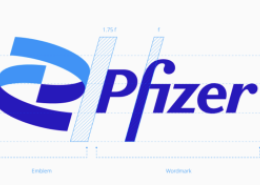Spark Therapeutics and Pfizer Announce Data from Initial Subjects in Hemophilia B Trial Demonstrating Consistent Therapeutic Levels of Factor IX Expression
Thursday, May 19, 2016 - 02:30am
Subjects received one-time administration of a highly optimized gene therapy at initial low dose without the need for immunosuppression
Therapeutic Factor IX activity sustained at levels exceeding those considered sufficient to reduce the risk of joint bleeds and need for prophylactic clotting Factor infusions
Expanded dataset on first cohort to be presented June 11 at European Hematology Association meeting
Spark Therapeutics (ONCE) and Pfizer Inc. (PFE) announced today that new data will be presented on June 11 at the European Hematology Association’s (EHA) 21st Congress. These data will show encouraging initial observations for the first subjects dosed in the Phase 1/2 clinical trial of SPK-9001, the lead investigational compound in the SPK-FIX program, which is being studied for the treatment of Hemophilia B. SPK-9001, a novel bio-engineered adeno-associated virus (AAV) capsid expressing a codon-optimized high-activity human Factor IX variant, was developed using Spark’s proprietary technology platform for selecting, designing, manufacturing and formulating highly optimized gene therapies. The conference abstract, including a figure demonstrating Factor IX activity levels (as % of normal) expressed by subject over time, was made available today:
http://www.ehaweb.org/congress-and-events/21st-congress/key-information-3/
Data available today demonstrate that the first three subjects enrolled in the study experienced AAV-mediated Factor IX activity levels following one administration of SPK-9001 at the initial dose level (5 x 1011 vg/kg) studied in the trial. Factor IX activity levels in the first two subjects, without prior history of liver disease, rose consistently through the first four weeks post-administration. At the time of abstract submission, the first subject stabilized at 28% of normal at eighteen weeks, and the second subject at 30% of normal at seven weeks post-administration. Factor IX activity level in the third subject, with a history of liver disease, also rose consistently and was at 16% of normal at three weeks post-administration. Data from a natural history of patients with hemophilia suggest that circulating factor activity levels sustained at a threshold of greater than or equal to 12% of normal generally are considered to be sufficient to reduce the risk of joint bleeds and the need for prophylactic clotting factor infusions.
Over the combined 28 weeks of observation reported in the abstract, none of the three subjects received regular infusions of Factor IX concentrates to prevent bleeding events. Only one precautionary infusion has taken place due to a suspected ankle bleed in one subject two days after administration of vector. SPK-9001 has been well-tolerated and no subjects have needed, or received, immunosuppression.
“We are highly encouraged by these initial data, which are supportive of the target profile of a potential gene therapy product capable of eliminating the need for regular infusions to control and prevent bleeding episodes through a one-time, intravenous administration,” said Katherine A. High, MD, co-founder, president and chief scientific officer of Spark. “Our hypothesis had been that delivery of a highly optimized gene therapy at low doses could allow expression of therapeutic levels of FIX while avoiding the need for immunosuppression. The data summarized in the abstract of SPK-9001 appear to support this hypothesis, although we will continue to monitor and investigate the validity of the hypothesis as well as assess long-term efficacy and safety of the product candidate.”
Spark and Pfizer entered into a collaboration in 2014, under which Spark will be responsible for conducting all Phase 1/2 studies for any product candidates that may be developed under the SPK-FIX program, while Pfizer will assume responsibility for pivotal studies, any regulatory activities and potential global commercialization of any products that may result from the collaboration.
“Although these results are early, we believe that the initial SPK-9001 data are promising,” said Greg LaRosa, Chief Scientific Officer, Rare Disease Research Unit, Pfizer. “Pfizer has a longstanding commitment to the hemophilia community and strong history of providing hemophilia products to patients for nearly two decades. We look forward to our continued collaboration with Spark as we work toward our shared goal of bringing to market a novel potential therapy for hemophilia patients around the world.”
Up-to-date results from the trial will be presented at the EHA Congress on June 11 by Dr. Spencer Sullivan, an Assistant Professor of Pediatrics and Medicine at the University of Mississippi Medical Center, one of the trial investigators. The trial is led by Dr. Lindsey George of the Children’s Hospital of Philadelphia. In addition, the work has been selected by the EHA for press briefing at the Congress scheduled for June 11, 8:30 am CET.
About Hemophilia B and the SPK-FIX Program
Hemophilia B is a rare genetic blood disorder that affects approximately 4,000 males in the U.S. and 26,000 males worldwide. Current treatment requires recurrent intravenous infusions of either plasma-derived or recombinant Factor IX to control and prevent bleeding episodes. Spark’s proprietary technology platform for selecting, designing, manufacturing and formulating highly optimized gene therapies was applied to developing SPK-9001, a novel bio-engineered adeno-associated virus (AAV) capsid expressing a codon-optimized high-activity human Factor IX variant enabling endogenous production of Factor IX, with the potential to be a one-time therapy. The SPK-FIX program leverages a long track record of hemophilia B gene therapy research and clinical development conducted by Spark and its founding scientific team over nearly three decades. SPK-9001 is being developed under a partnership with Pfizer.
About Spark Therapeutics
Spark is a gene therapy leader seeking to transform the lives of patients with debilitating genetic diseases by developing one-time, life-altering treatments. Spark’s validated gene therapy platform is being applied to a range of clinical and preclinical programs addressing serious genetic diseases, including inherited retinal dystrophies, hematologic disorders and neurodegenerative diseases. Spark’s most advanced product candidate, SPK-RPE65 (voretigene neparvovec), which has received both breakthrough therapy and orphan product designation, reported positive top-line results from a pivotal Phase 3 clinical trial for the treatment of rare blinding conditions. Spark builds on two decades of research, development and manufacturing at The Children’s Hospital of Philadelphia, including human trials conducted across diverse therapeutic areas and routes of administration. To learn more, please visit
www.sparktx.com.
Spark Cautionary Note on Forward-looking Statements:
This release contains "forward-looking statements" within the meaning of the Private Securities Litigation Reform Act of 1995, including statements regarding the company's SPK-FIX program. Any forward-looking statements are based on management's current expectations of future events and are subject to a number of risks and uncertainties that could cause actual results to differ materially and adversely from those set forth in, or implied by, such forward-looking statements. These risks and uncertainties include, but are not limited to, the risk that: (i) our lead SPK-FIX product candidate may not produce sufficient data in our Phase 1/2 clinical trial to warrant further development; and (ii) our overall collaboration with Pfizer may not be successful. For a discussion of other risks and uncertainties, and other important factors, any of which could cause our actual results to differ from those contained in the forward-looking statements, see the "Risk Factors" section, as well as discussions of potential risks, uncertainties and other important factors, in our Annual Report on Form 10-K, our Quarterly Reports on Form 10-Q and other filings we make with the Securities and Exchange Commission. All information in this press release is as of the date of the release, and Spark undertakes no duty to update this information unless required by law.
Pfizer and Rare Diseases
Rare diseases are among the most serious of all illnesses and impact millions of patients worldwide, representing an opportunity to apply our knowledge and expertise to help make a significant impact in addressing unmet medical needs. The Pfizer focus on rare diseases builds on more than two decades of experience, a dedicated research unit focusing on rare diseases, and a global portfolio of more than 20 medicines approved worldwide that treat rare diseases in the areas of hematology, neuroscience, inherited metabolic disorders, pulmonology, and oncology.
Pfizer Inc: Working together for a healthier world®
At Pfizer, we apply science and our global resources to bring therapies to people that extend and significantly improve their lives. We strive to set the standard for quality, safety and value in the discovery, development and manufacture of health care products. Our global portfolio includes medicines and vaccines as well as many of the world's best-known consumer health care products. Every day, Pfizer colleagues work across developed and emerging markets to advance wellness, prevention, treatments and cures that challenge the most feared diseases of our time. Consistent with our responsibility as one of the world's premier innovative biopharmaceutical companies, we collaborate with health care providers, governments and local communities to support and expand access to reliable, affordable health care around the world. For more than 150 years, Pfizer has worked to make a difference for all who rely on us. For more information, please visit us at
www.pfizer.com. In addition, to learn more, follow us on Twitter at @Pfizer and @Pfizer_News, LinkedIn, YouTube and like us on Facebook at Facebook.com/Pfizer.
PFIZER DISCLOSURE NOTICE: The information contained in this release is as of May 19, 2016. Pfizer assumes no obligation to update forward-looking statements contained in this release as the result of new information or future events or developments.
This release contains forward-looking information about SPK-9001, including its potential benefits, that involves substantial risks and uncertainties that could cause actual results to differ materially from those expressed or implied by such statements. Risks and uncertainties include, among other things, the uncertainties inherent in research and development, including the ability to meet anticipated clinical study commencement and completion dates as well as the possibility of unfavorable study results, including unfavorable new clinical data and additional analyses of existing clinical data; risks associated with initial data, including the risk that the final results of the Phase I/2 study for SPK-9001 and/or additional clinical trials may be different from (including less favorable than) the initial data results and may not support further clinical development; whether and when any applications may be filed with regulatory authorities for SPK-9001; whether and when regulatory authorities may approve any such applications, which will depend on the assessment by such regulatory authorities of the benefit-risk profile suggested by the totality of the efficacy and safety information submitted; decisions by regulatory authorities regarding labeling and other matters that could affect the availability or commercial potential of SPK-9001; and competitive developments.
A further description of risks and uncertainties can be found in Pfizer’s Annual Report on Form 10-K for the fiscal year ended December 31, 2015 and in its subsequent reports on Form 10-Q, including in the sections thereof captioned “Risk Factors” and “Forward-Looking Information and Factors That May Affect Future Results”, as well as in its subsequent reports on Form 8-K, all of which are filed with the U.S. Securities and Exchange Commission and available at
www.sec.gov and
www.pfizer.com.








